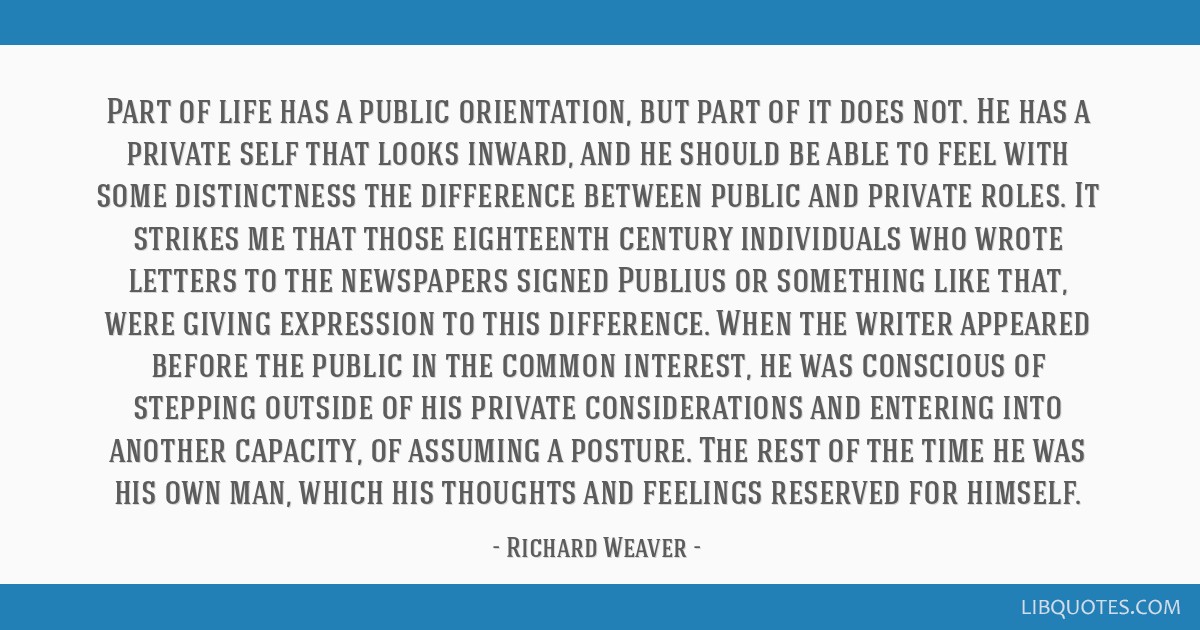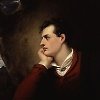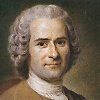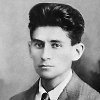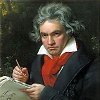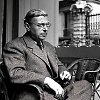Part of life has a public orientation, but part of it does not. He has a private self that looks inward, and he should be able to feel with some distinctness the difference between public and private roles. It strikes me that those eighteenth century individuals who wrote letters to the newspapers signed Publius or something like that, were giving expression to this difference. When the writer appeared before the public in the common interest, he was conscious of stepping outside of his private considerations and entering into another capacity, of assuming a posture. The rest of the time he was his own man, which his thoughts and feelings reserved for himself.
Individuality and Modernity, Essays on Individuality (Philadelphia: 1958), p. 72.
